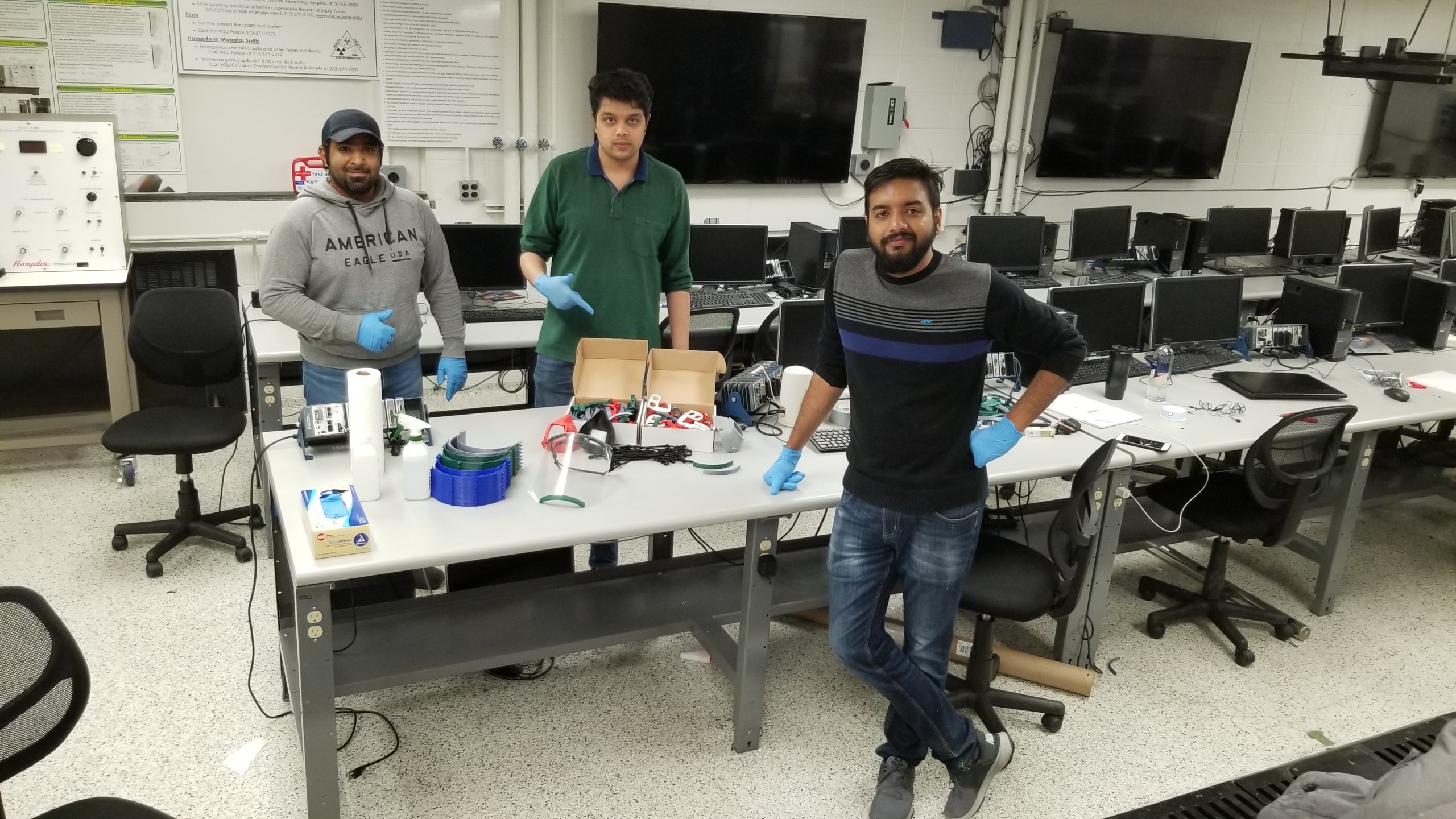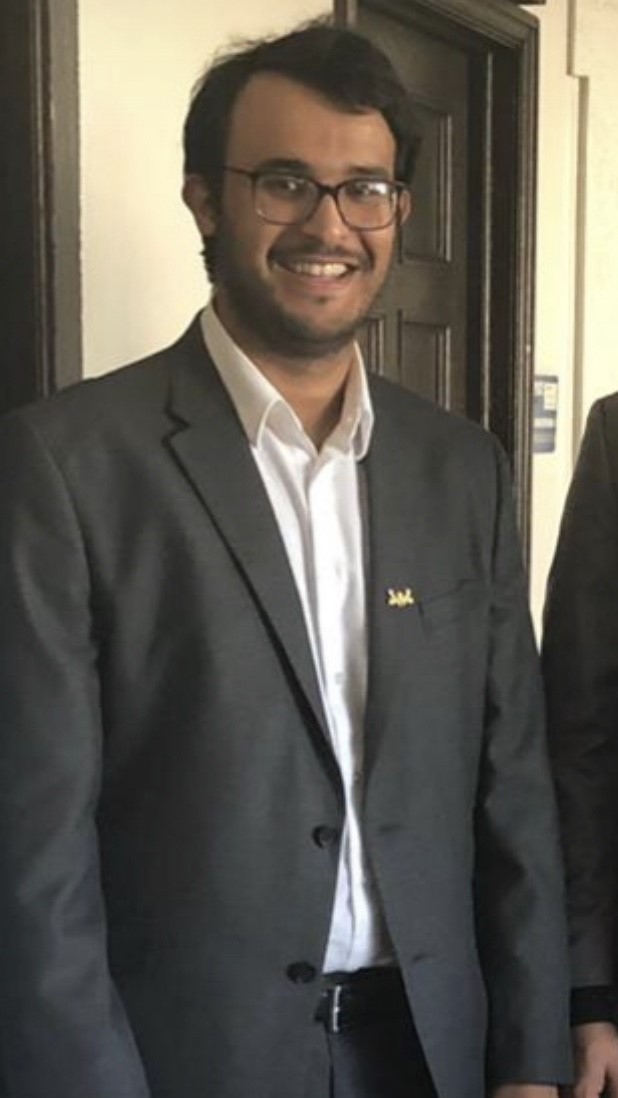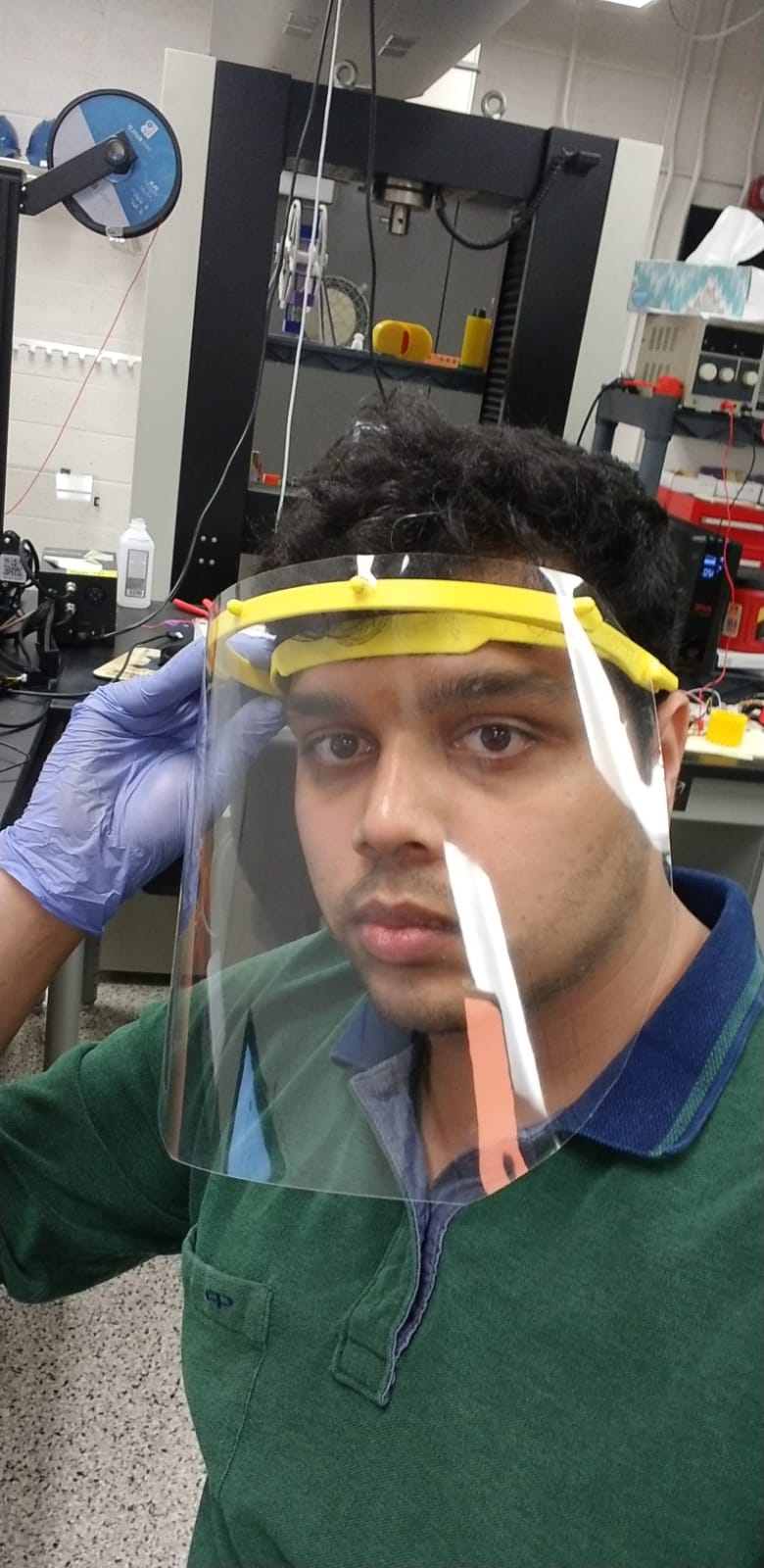International team of Saudi, Indian and American engineering students 3D print PPE face shields, masks and door openers
From the beginning of the COVID-19 crisis, mechanical engineering Ph.D student Husam Alrehaili had been looking for ways to help out.

During a Zoom call with graduate students and faculty from the College of Engineering, he pitched the idea of manufacturing personal protective equipment using 3D printers, an idea he had previously discussed with his friend Pawan Vedanti.
"I saw other universities doing similar things," says Alrehaili, who is from Saudi Arabia. "I know we have the materials to do this, I know we have people who know how to run these machines. We can do something." It took less than a day for him to receive approval for this project.
"He had told me about his idea," says Vedanti, a mechanical engineering Ph.D graduate from India, "and I said I liked it but we were going to need the proper permission. He says 'Don't worry about that, I'll take care of it,' and less than a week later I'm in the lab printing face shields."
The team quickly expanded to include other international students, mechanical engineering graduate research assistant Ajay Bhagavatam from India and biomedical engineering Ph.D candidate Yousef Alshahrani from Saudi Arabia. Both have extensive experience working with 3D printers.
"I was very into the idea as soon as they contacted me," says Bhagavatam." I always wanted my education to be able to benefit society. If this helps even one person, it will have been worth it."

Alshahrani is similarly excited to be able to use his education in a helpful way. "It's an honor to be able to give back this way," he says. "I think WSU is one of the universities to have taken the best actions against this. The engineering department has been a great help in providing the materials for the parts."
Other students involved in the project include first-year engineering student Nicholas Kerner, mechanical engineering major Carlos Martinez and medical student Rafael Ramos, while logistics and coordination is overseen by lecturer James Lenn, Professor Jeffrey Potoff, Associate Professor Amar Basu and Andy Murrell, director of Connect Services.
"We have printers to manufacture whatever design," says Alrehaili. "In order to help workers with protection, we are able to modify the designs to print as much as we can and increase our capacity." The team modified designs originally found online, making them more flexible to prevent discomfort and allowing them to be reused by replacing the plastic mask.
The team has produced over 1,300 face shields across two 3D printing labs. They have now begun to work on other forms of PPE. Bhagavatam says they're testing different designs for facemasks that would cover the mouth and nose, and manufacturing simple door openers in preparation for students and faculty returning to campus.

"We have already made around 4,000 door openers, but we want to be able to distribute this to as many people as possible," says Alrehaili. "It takes only one person to bring us back to square one, so we are making the door openers and facemasks to prevent that."
The door openers are small enough to attach to a key chain. The team added the WSU logo to them and the message "stay safe."
"If there is an option to help others to open doors without having to touch it with their hands or elbow," says Alshahrani, "that would be great for them. We're going to keep working until we see the need is over. Eventually we will stop, but not until the need has gone."
Alshahrani and the rest of the team don't think their work is going to be ending any time soon, but they are all happy to help for as long as they're needed.
"This is an opportunity of our lifetime," says Vedanti. "Our grandparents always talk of the times of struggle they went through. I will be able to tell my grandkids of living through this and being able to help out."
While uncertainty lingers about how long this crisis will go on, the team is prepared to keep working for as long as they are needed. They have already received positive feedback from those they have been able to help.
"I was talking to a fellow student who had a friend who supplied those face shields to her hospital unit," says Alrehaili. "The thank you from them is what makes this all worth it. Just to see that response, to know we can make a difference in this way. It means a lot."
By Jacob Stocking, OIP communications associate
The Office of International Programs leads Wayne State's global engagement by creating opportunities that foster international education and research, facilitate the exchange of individuals and ideas that promote global competencies and citizenship, and provide resources that support the expansion of the university's global agenda. Follow us @WayneOIP.